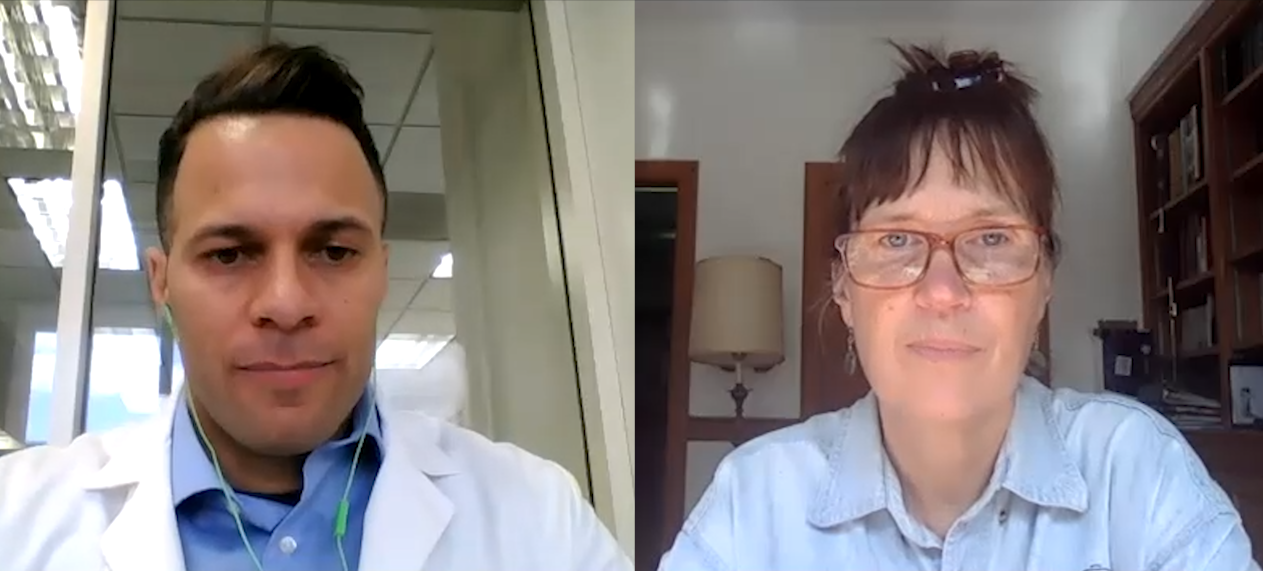

Overview
Aquifer Telemedicine provides an overview of key foundational knowledge and skills to help students prepare for telehealth experiences. In total, all four cases should take students less than an hour to complete, providing a fast, effective tool for faculty to incorporate this rapidly expanding facet of healthcare into their teaching.
Aquifer Telemedicine is part of Aquifer’s Clinical Excellence Case Set, which includes 52 cases covering Palliative Care, Trauma Informed Care, Diagnostic Excellence, High Value Care, Social Determinants of Health, and Telemedine.
- Part of Aquifer’s Clinical Excellence Case Set, included with Curricular Partner subscriptions and available by subscription to Limited Subscribers
- Ready-made cases for to support self-directed learning, appropriate to supplement pre-clinical or clinical learning
- Cases take approximately 15-20 minutes to complete.
- Appropriate to support pre-clinical or clinical learning.
- Can be combined with other cases in a custom course to meet the needs of your specific curriculum.
These short cases are a quick and easy way for students to become familiar with the principles and practice of telemedicine through self-directed learning. The cases provide a key base of knowledge, guiding learners through building a patient history based on clinical condition, performing a physical exam, and how to manage a patient and escalate care through telemedicine. In total, all four cases should take students less than an hour to complete, providing a fast, effective tool for faculty to incorporate this rapidly expanding facet of healthcare into their teaching.
Content for these cases is aligned with AAMC telemedicine competencies. Cases were authored and peer-reviewed by medical educator members of the Society for the Teaching of Family Medicine (STFM) and the Clerkship Directors in Internal Medicine (CDIM).
Aquifer Telemedicine provides an efficient solution for covering telemedicine, saving faculty time by providing access to high-quality, ready-made course materials.
All Clinical Excellence Case Sets, including Aquifer Telemedicine, now include:
- Principles module: covers key definitions, epidemiology, explanations of key principles and why they are important for patient care, and a harm statement that makes it explicit what harm can come to the patient if the principle is not incorporated into practice.
- Application Cases: Brief, realistic case scenarios that focus on one area of a patient encounter, and are centered around asking students to make important clinical decisions. Content models evidence-based best practices and communication strategies, exploring the real-world impacts on care and potential harm. At the end of each case, a reflection question asks the students to consider key takeaways, implications for their future practice, or personal wellness. Each application case also includes self-assessment questions that extend the learning to other scenarios.
Aquifer Telemedicine is designed for any level student in a medical school or health professions program. The course is an ideal assignment for students to complete as preparation for clinical experiences that include telemedicine. Cases also serve as valuable reference material for students to return to as they need to refresh their knowledge during clinical rotations.
Programs with a current Aquifer subscription will also have faculty and administrator access to an accompanying educator guide. Subscribers will also be able to view student progress reporting and combine the new cases with other Aquifer content in a custom course.
- Case 1: Principles of Telemedicine
- Case 2: Building a history
- Case 3: Performing a physical exam
- Case 4: Escalating care
Learn More
4 minute video
Learn how Aquifer Foundations of Telemedicine—available free of charge—can benefit students and faculty in your program from course editor Amit Pahwa, MD.
Podcast
Integrating Telemedicine Into Medical Education
Guest: Amit Pahwa, MD, Director, Internal Medicine Sub-Internship, Johns Hopkins Hospital, Associate Professor of Medicine, Johns Hopkins University, Editor-in-Chief, Aquifer Foundations of Telemedicine
In this episode, Dr. Amit Pahwa discusses the development of Aquifer’s new Foundations of Telemedicine course, which is freely available to all teachers and students. Dr. Pahwa talks about the genesis of the courses, how to integrate the courses into your curriculum, how the cases fit different needs of students, and how faculty members can use the cases in their instruction. Due to the rise in the use of telemedicine across all disciplines, these courses are of great importance to all medical professions students. The cases align with the AAMC’s Competencies for Telemedicine.
Full show notes can be found here.
